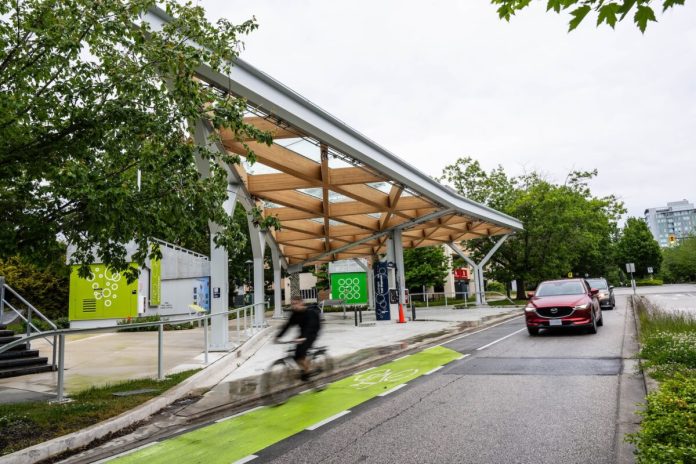A $23 million Smart Hydrogen Energy District (SHED) has been launched at the University of British Columbia, Canada, that will use hydropower and solar energy to produce hydrogen.
According to the government, British Columbia generates most of its electricity by harnessing the power of flowing water. The rest comes from forest biomass, wind, natural gas, solar and landfill gas.
The SHED will be equipped with a hydrogen fueling station and will produce hydrogen using hydropower and solar energy to operate a water electrolyser. It is one of the first initiatives in Canada to combine hydropower, solar and hydrogen energy at a single site, connecting these renewable energy sources to a unified micro-grid, according to the university. SHED will be the province’s first hydrogen station to serve light- and heavy-duty vehicles.
“The UBC Smart Hydrogen Energy District (SHED) is yet another leap forward in building a clean economy and creating new opportunities for British Columbians,” said The Honourable Josie Osborne, Minister of Energy, Mines and Low Carbon Innovation. “By integrating energy, transportation, and design, SHED not only supports our CleanBC goals but it also positions British Columbia as a world leader in the hydrogen economy. Projects like this demonstrate our commitment to producing clean energy and ensuring a prosperous future for generations to come.”
SHED combines various technologies within a city block, serving as a model for compact urban planning. A rooftop solar array powers the hydrogen fueling station and nearby electric vehicle (EV) charging stations. Two-way charging will enable parked EVs to both draw power from the grid and give excess stored electricity back to the grid during peak hours when there is extra energy demand.
“Hydrogen can play a critical role in Canada’s transition to a low-carbon economy,” said Dr. Walter Mérida, SHED research lead and professor of mechanical engineering in the faculty of applied science. “With SHED, we demonstrate hydrogen as a bridge between renewable electricity and sustainable energy services. As technologies become smart and interconnected, we can stop thinking of gas, electrical and digital networks as separate entities. Cars sit in parking spaces most of the time – with the right infrastructure, they can also serve as mass power banks, stabilizing the electric grids of the future,” said Dr. Mérida.
A secure 5G network connects SHED’s different systems, enabling researchers to create digital simulations for energy, transportation and urban planning research.
SHED received funding from many partners: $8.3 million in low-carbon fuel standard credits from the Ministry of Energy, Mines and Low Carbon Innovation; $5 million from the Government of Canada; $4.6 million from the Canada Foundation for Innovation; $4.6 million from the British Columbia Knowledge Development Fund; and $800,000 from industry partners, including HTEC.






